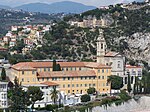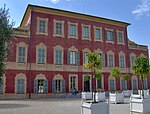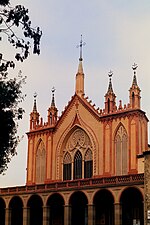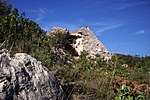Saint-André-de-la-Roche
Alpes-Maritimes geography stubsCommunes of Alpes-MaritimesPages with French IPA

Saint-André-de-la-Roche (French pronunciation: [sɛ̃.t‿ɑ̃dʁe də la ʁɔʃ]; Occitan: Sant Andrieu de la Ròca; Italian: Sant'Andrea di Nizza) is a commune in the Alpes-Maritimes department in southeastern France.
Excerpt from the Wikipedia article Saint-André-de-la-Roche (License: CC BY-SA 3.0, Authors, Images).Saint-André-de-la-Roche
Chemin Léon Henry, Nice
Geographical coordinates (GPS) Address Nearby Places Show on map
Geographical coordinates (GPS)
| Latitude | Longitude |
|---|---|
| N 43.7411 ° | E 7.2883 ° |
Address
Chemin Léon Henry
Chemin Léon Henry
06730 Nice
Provence-Alpes-Côte d'Azur, France
Open on Google Maps







